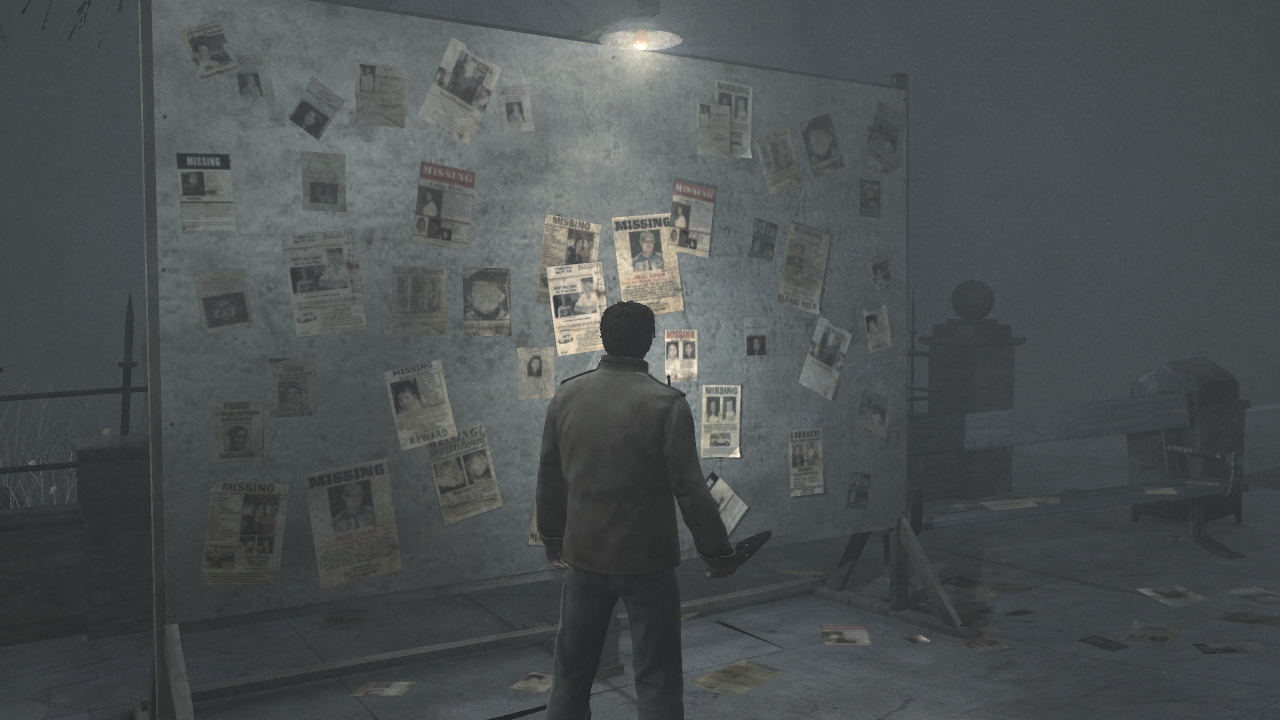Games have changed...
How video games have changed over the years in the eyes of a gamer turned dev.

When I say "Games have changed", I am literally trying to mimic Snake saying "War has changed". It has that certain dramatic tone to it about the development, audience and economy of an industry. I feel games have lived their prime age to an extent and they might not enjoy a similar age anytime soon. This is a very important subject for my life. I've learned to program video games in a country where people never considered it a real profession or hobby. It's safe to assume, education and culture could not exist in a country with that attitude towards an industry. But I learned to code and understood core principles of a video game.
But after all these years, if there's one thing I love to do, it's playing games. I believe, I have enjoyed gaming far better than many. However, in recent times, I have found a huge list of games pending to be played. This is not because I have lost interest, there are so many factors involved in this. I'll break this article down into factors that may have contributed to this change.
There's too much noise
When I saw Intel AppUp store, I knew App Stores had grown bigger than their use. I have always avoided playing games on my computer or laptop. I want to keep the machines for their intended use. Consoles are for gaming and a computer is for work. This has now changed. I built a gaming PC later in 2008 to enjoy the better versions of games like Crysis but I rarely turned to this computer and have been playing games on PlayStation, Wii and PSP. I wanted it to stay that way, because I like to be selective about what games I play and the quality of content being delivered on the platform.
The PlayStation platform has a lot of exclusive 3rd party support and you keep seeing these awesome games all the time. This goes for other platforms like Xbox and Wii as well. However, the amount of original content has dropped drastically. Most of the games, I see popping up on the PS Store/XBL or other game stores do not have enough content to satisfy the longevity of a platform. There are exceptions, for example, on mobile platforms there are games such as Fruit Ninja, Angry Birds or Temple Run etc, but other games just can't catch on. 
I went as far as to say that Fruit Ninja had that feel for touch devices that Pacman had for Arcade consoles. It has interesting game-play, tight controls and replay value that forced me to play it again and again. When I played Angry Birds for a long time and wanted to play a new game, I found a hoard of clones and copy cats plaguing the app stores on every platform. These games had no soul and they just wanted to cash in some of that market. It gave me the worst feeling when I saw Angry Birds being developed for bigger consoles as well. Then, I saw it on Intel AppUp store. I did not play that game, no matter how good it felt. That game did not belong on those platforms.
The rise of sequels and clones has generated a lot of noise in the gaming industry. I stopped playing the Tekken series after the 3rd Installment but I enjoyed the Tag version. Namco has been busy creating sequels of that game for many years and I'm sure there's a huge fan base for the game. But why not spend some energy reforming "Ridge Racer"? The recent "Unbounded" entry in the series is the worst and I don't think it can get any worse than that. Silent Hill is another example. I may get flamed about this but I know they are both great game studios. 
Silent Hill - Homecoming
OK, I'll explain another side of this case and why I think this noise has increased. This will also help me explain the later parts of this article. There used to be a time when Video Game development was pretty much "Black Magic" and the percentage of game development studios was low. There was less competition and studios had more time/resources to spend on one game. This changed with the advent of scripting languages and more accessible technology and knowledge of hardware. Platforms like Facebook/Flash made it easier for people to create and publish their games. This opened up a whole can of worms with terms like "casual" gaming and "free to play (F2P)". The existing game studios took a lot of time to move their development strategies between consoles/pc and other platforms. This allowed smaller game studios to rise up with "a lot" of smaller games. Most of these games do not have any value beyond a small play group but others made it big. And then the world jumped in to the video game scene and made money from it, or at least tried to.
The more game studios, the more content they generate and without any scale to live up to; Review sites like IGN or GameSpot cannot possibly cover every game that's released out there. But you do come to see all those games in store listings. You can either opt to play them or pass them to know if they're worth your time and money. Either these so-called "casual" games are helping the game industry or they're hurting it, I won't put a vote on either one. That's a long debate and one that I do not have enough stats to prove. But I do know that they've generated too much noise for the average gamer. It's not possible to play all these games, even if you only choose to play the good ones.
Games have lost their attraction/depth
I look back to the days when I played the first game on the Arcade and it was "Double Dragon". I have almost played every console that released through the years from Atari to PlayStation 3 etc. I can list down the first games that generated a lot of interest for that platform:
The biggest thing to notice from the above list is that almost all of them are exclusive or original games and they define these platforms. The controls, the graphics and the game-play were specifically designed to match the hardware and the intended audience. So what I said in the beginning of this article has a lot to do with the quality of a video game as a product and not parts of it.
Here's the intro of Ridge Racer Type 4 on Playstation 1. Please click to watch and then read on:
http://vimeo.com/68497114
Whether you have played Ridge Racer Type 4 or not, that's not the question here. This intro and the game inside has that "feeling" that defined the game. The developers behind it had a vision and they programmed the game through that vision. It was not like they "had to" make a game follow a series. Type 4 had everything that Ridge Racer was known for. How do game devs do that through the years? It's definitely "not" because of a proprietary engine or technology used by the developer. It's the people involved with the team responsible for the game. Are they working on the project because they want to make a living or if the company asked them to develop one? Or are they working on it because they "want" to.
If I jump from consoles to mobile space, the perspective changes with the size of the game and platform. Mobile games are short with extensive repetition of the same game-play but exciting enough to keep people playing, once they're hooked. But the real problem with all these mini games is user acquisition and retention. Once a user goes a certain mile, he'll continue playing the game for a long time but if he leaves in the first or second week, the game's pretty much dead to him. I've experienced this myself for some time now and I can't find myself playing games on my mobile or laptop. May be, it's the idea of playing console quality games that has kept me away from mobile games or that I prefer a deeper experience from a game than mere "jumping" mindlessly.
I may sound harsh with the arcade feel of mobile games but I like to compare today's mobile arcade games with the likes of "Pacman", "Rygar" or "Journey". If the differences between these two game eras is "Monetization", then may be monetization is to blame. Free to play or casual games are forcing developers to change their design considerations. I can still see myself paying a certain amount of money to play "Journey" for hours than I'd like to be reminded every minute in a mobile game that I can't level up unless I buy something. 
I don't want to completely shut myself of the fact that there aren't "any" games that force me to play. "The Last of Us" has literally blown everything out of the water. It has proven the dedication that goes in to making a game is worth it. I had the same love for "Final Fantasy" but I didn't play any Final Fantasy game on the PS3.
We're too retrofitted
Do other people feel the same way as I do? Does age really affect playing video games? I bet it does to some extent. But the golden question is:
If everyone from the Y generation is around 30-40 years of age, are they going to stop enjoying games? They're the ones who programmed Mario and Sonic and they played all those Nintendo consoles.
I have emulators in my PC and sometimes I look forward to playing classic games repacked as "HD" on my console as well. If I do not have time to play recent games such as "Tomb Raider" and "Crysis 3", why do I want to go back and play "Ico" all over again? Why is the idea of playing a retro game so satisfying? 
Garou - Mark of the Wolves
"Garou, Mark of the Wolves" remained the most played game with my friends in the past 3 years. SNK made that game 2 decades ago. We still enjoy it because of its balanced fighting system and characters. We had "Tekken 6" lying around all this time but we preferred to play a Retro game over it for 3 years. We had Tekken players among us and we did play it once or twice in a month but it just didn't stick. The Tekken players still wanted us to load "Tekken Tag" or "Tekken 3" for a better fighting experience.
Retro is not specific to pre 3D era as well. When I mentioned all those platform defining games in the previous heading, I gave examples of games that came out and helped outsell a system. People always buy hardware because of the software support and continue looking forward to the software.
More than half of the current generation games are based on retro imaginations of the same games. People keep buying these games because of their memories for these games. But somehow, with every sequel, the game loses the depth that the original had. I'm sure this hurts the game a lot. I've already given an example of Silent Hill and I'm sure everyone who's seen or played the recent installments in the series will agree with this fact.
There have been some excellent sequels or reboots as well. The recent Tomb Raider reboot was perhaps one of the best games I've played in a long time, but it's still part of the list of games that I need to finish. But then there is this article: Untold Riches - The Intricate platforming of Tomb Raider. This article says so much about everything I've written so far. I highly recommend giving it a read, whether you're a Tomb Raider fan or not.
If you've read so far, you might feel that I've gauged the current game generation in a retro-scope. I've already explained the reasoning behind it pretty much but does it make sense? I think it does to a bigger extent. I have friends that have been playing games with me since childhood and they share this feeling. Whether this is correct or not or the gaming industry is running out of ideas is another discussion. But retro games will probably dictate the course of game development for a long time.
I don't have time or have gotten old...
"Ni no kuni", "Tomb Raider" and "Crysis 3"; These are the games I have in the list of "to-play" on the Playstation 3. "Dead Space Series", "Alan Wake" and "Sleeping Dogs" on the PC. These are absolutely the best of games that the industry has produced in the past few years and I was looking forward to them. I bought them all and for a while I thought I'll play them over the weekend. Many weekends passed and the games are lying there.
This saddens me. I said it before and I will say it again, video games are part of my life and I love playing them. They have so much craft and creativity packed into them. The versatility and the sheer amount of thought that goes into making an interactive program. i think that may be the reason a lot of people like playing video games.
I've read over the internet that people complain about the same thing. They're buying games but not playing them. Some of them say that they don't have enough time while others complain that there are too many games to play. I, for one, think that I have "lost interest" in video games in general. When I said that it "saddens" me, that's what I really meant. I never wanted to lose interest in games. It could be that I'm really busy these days with my job and life and I'll be up and playing in no time. But that may not be true as well. 
Metal Gear Rising
I had two other games during this time, "Devil May Cry" and "Metal Gear Rising". I bought those games and ended them over night. It was part mindless slashing coupled with engaging game-play mechanics. I enjoyed playing "Rising" so much that I started it all over again right after finishing it. May be, my mind isn't fresh enough to play games that requires more time and effort. I just want to have fast and satisfying game-play.
I play fight em ups every weekend with a friend. "Dead or Alive 5" and "Mortal Kombat" are in our prime line up. Those games give the best response to playing a game. Why do I call it Response? Because I'm enjoying the company of a friend "and" playing a game with a lot of effort. This turns the idea, of me not playing games that need time and effort, upside down. May be it's not boredom or effort that stops me from playing those wonderful games. May be it's the time I've spent at the Arcades that I can't let go of. All those games that you had to wait in line for and fight another person when he's standing next to you.
Have I gotten old? I wouldn't like to think of myself as old per say. But it could be that my taste for games has changed. I do not look forward to sitting 48 hours consecutively and hunt for the ultimate sword in a Final Fantasy game. I think the industry analysts dividing games into "age" groups are perhaps right. A 16-year-old would have the energy and time to finish a game 100% and gain all trophies and achievements and secret stuff. I, however, would like to go through the game once without worrying about the achievements and progress and call it a "game". To me, the idea of 100% is not attractive. But that's me.
Wrapping it up
I'm playing "The Last of Us" these days and I think it'll revitalize that faith in me to get back into playing games. It is games like this that might decide the course of game development in the future. Anyhow, I've written enough and spoken my mind. If somebody feels the same as I do or not, I'd like to hear it. Thanks for reading.
Note: This was originally published on my blog here.
Read more about:
BlogsAbout the Author(s)
You May Also Like













